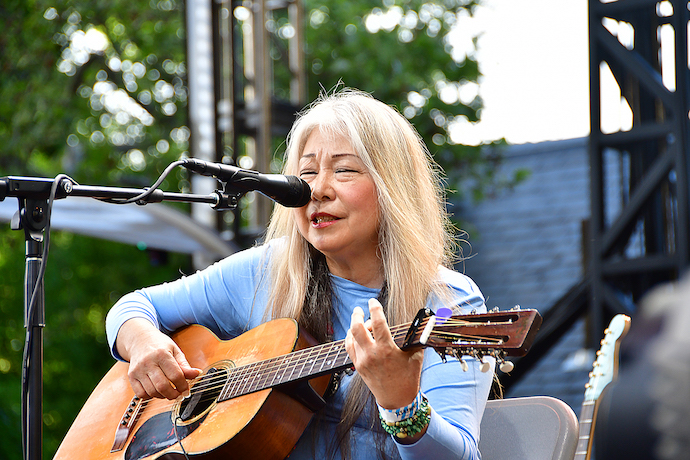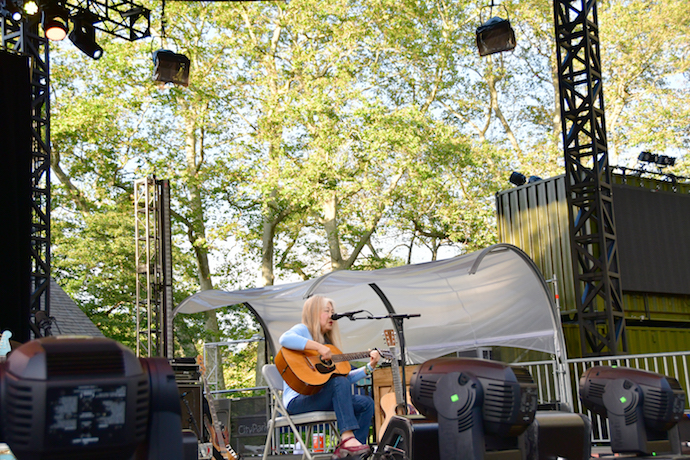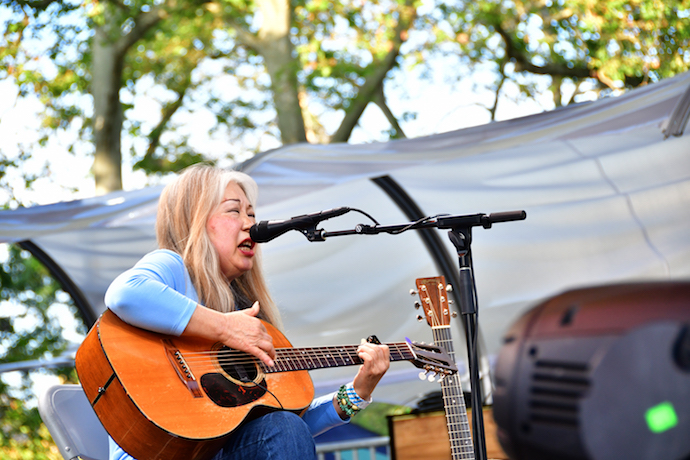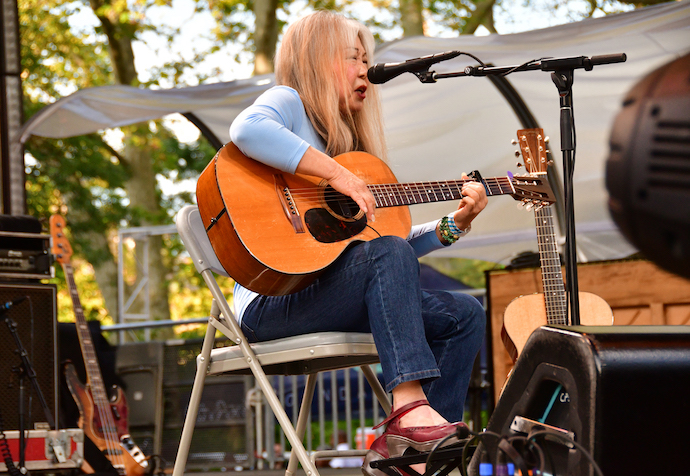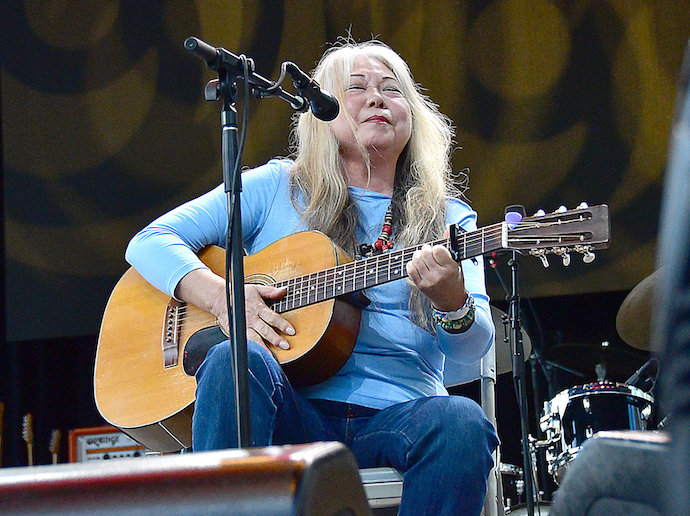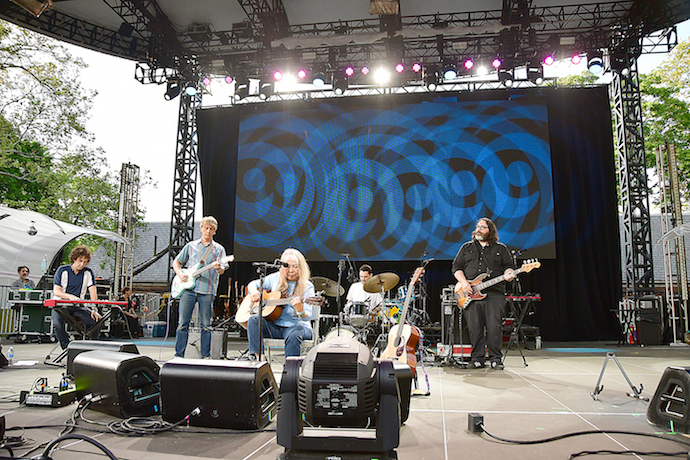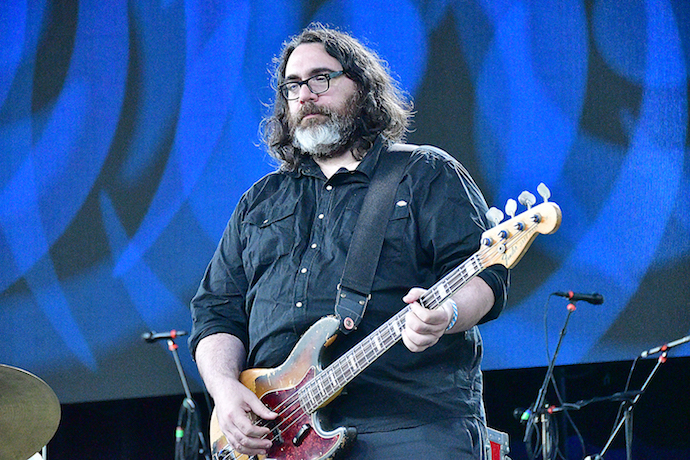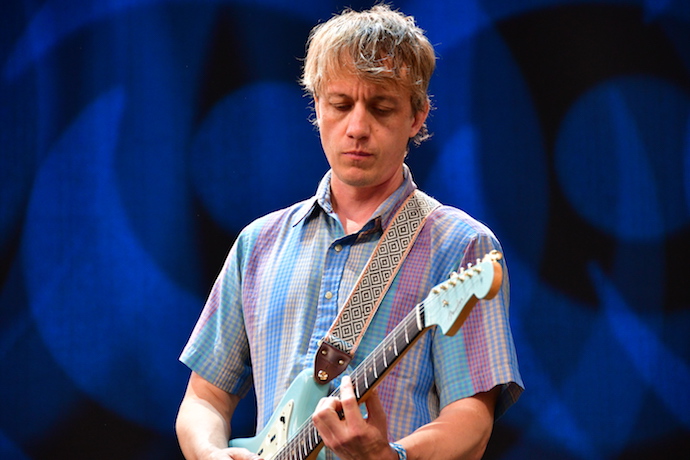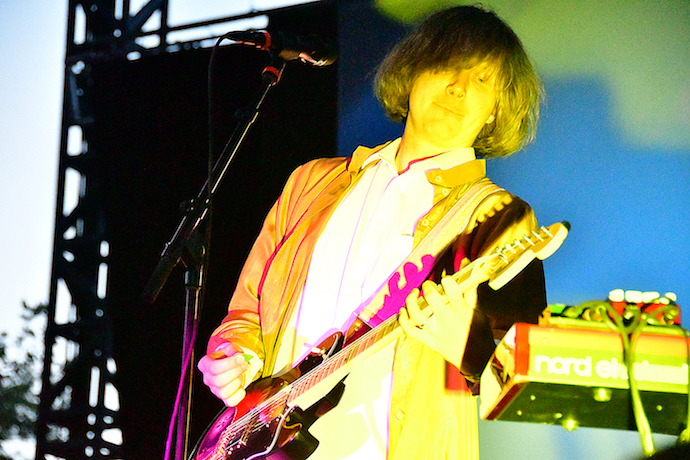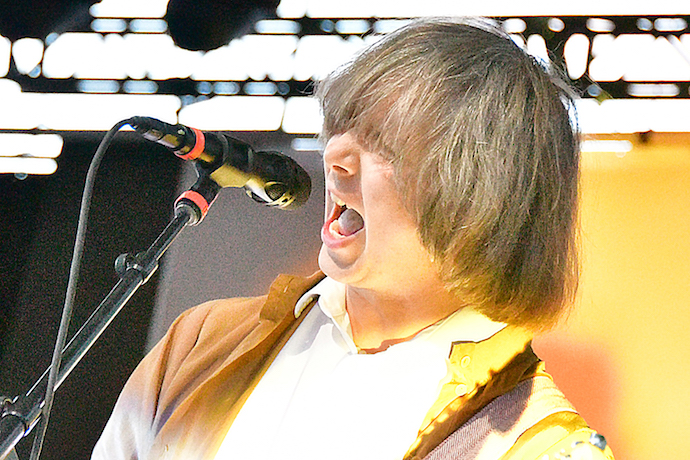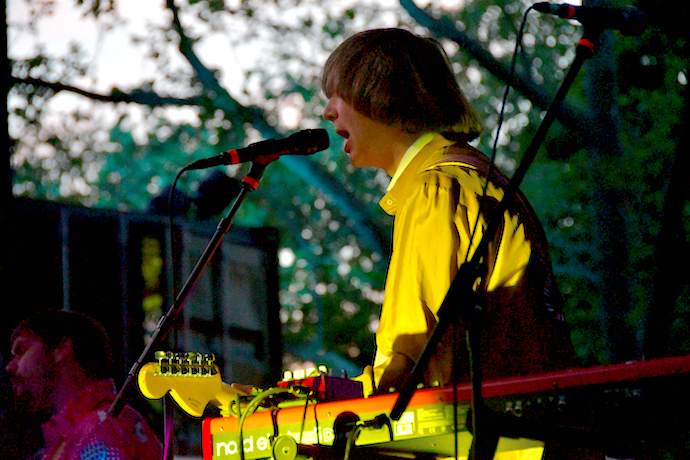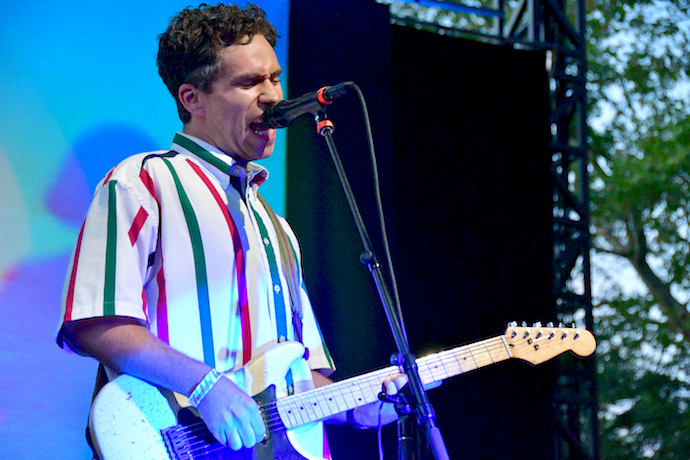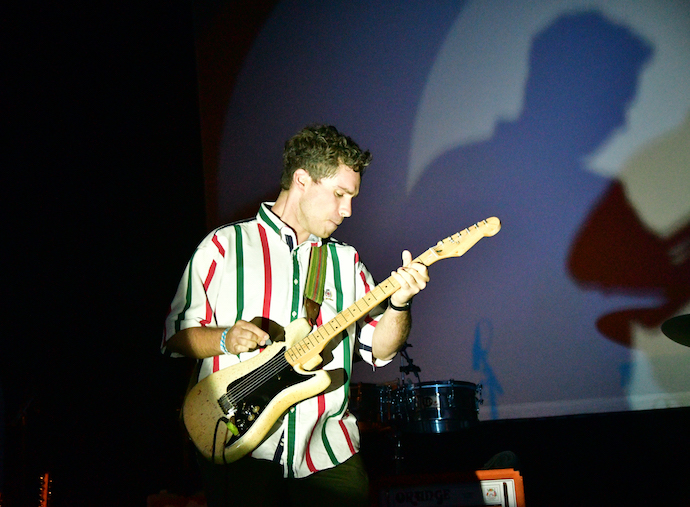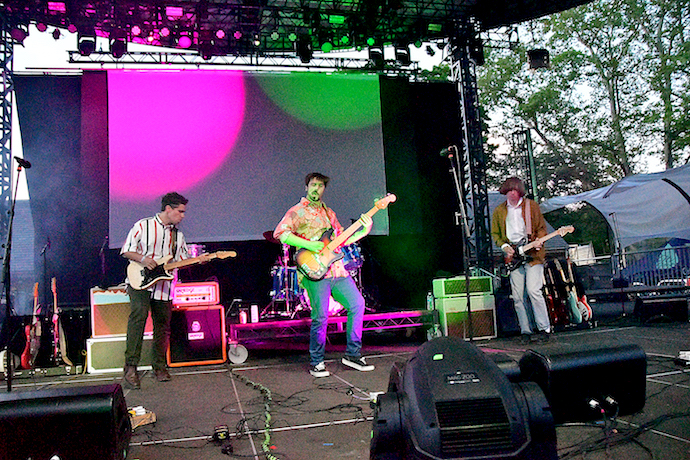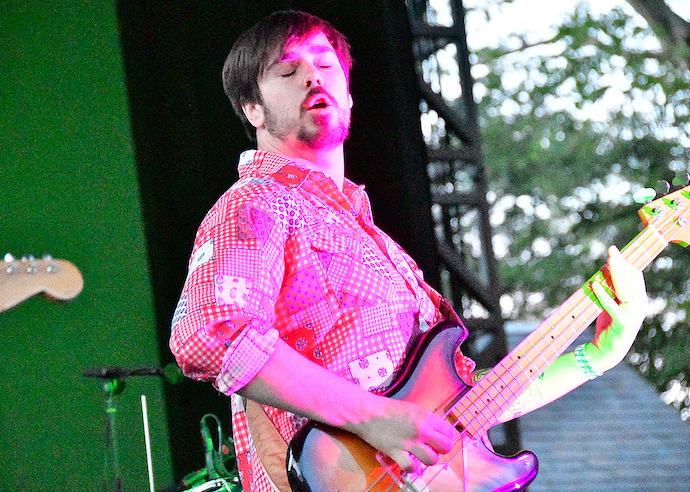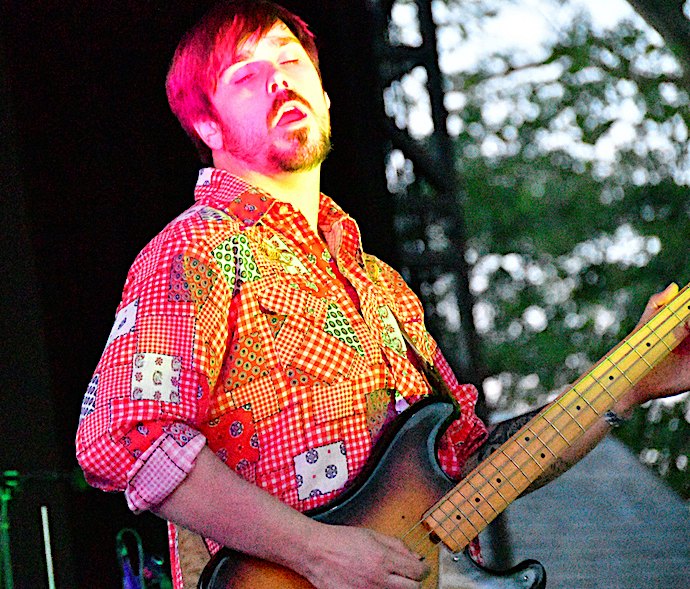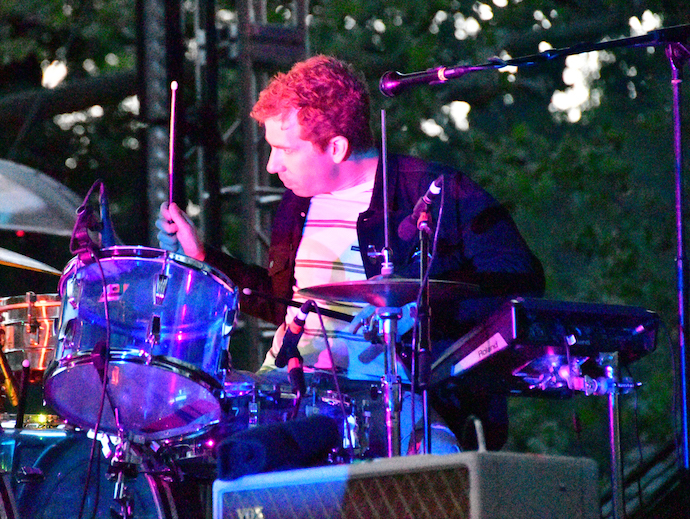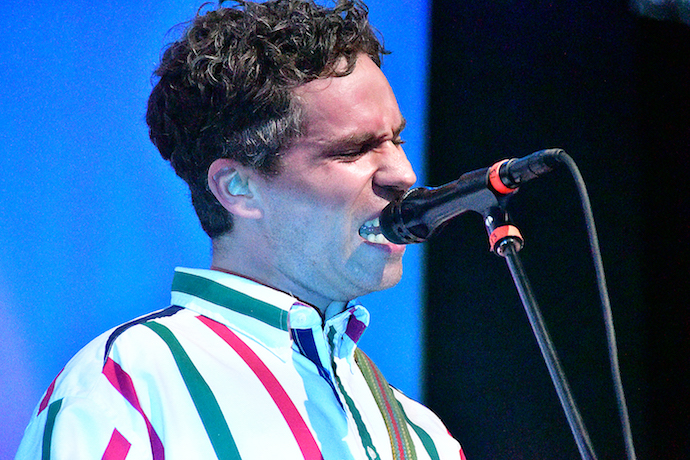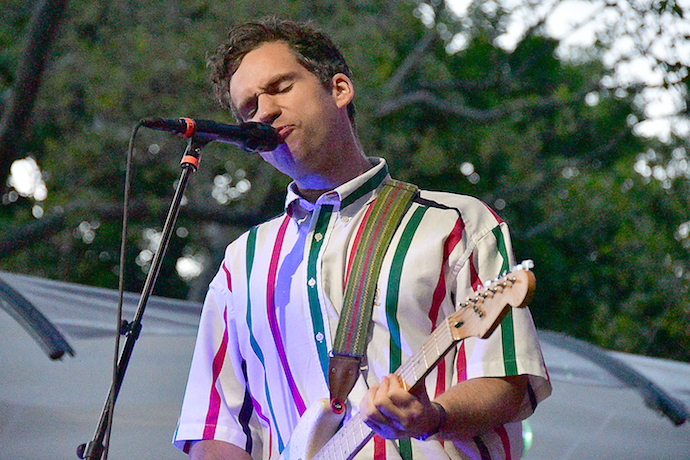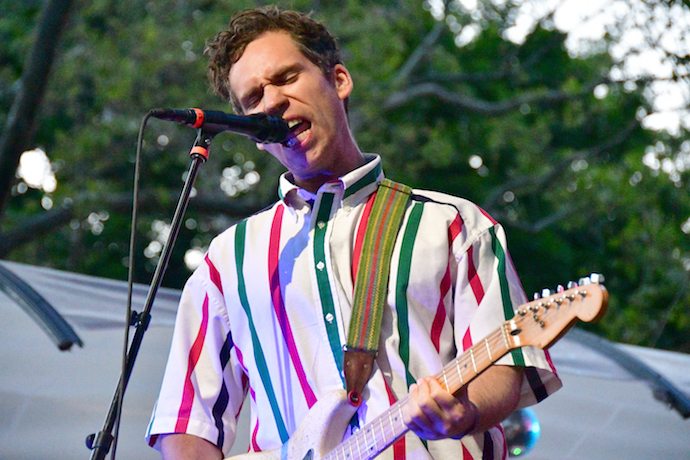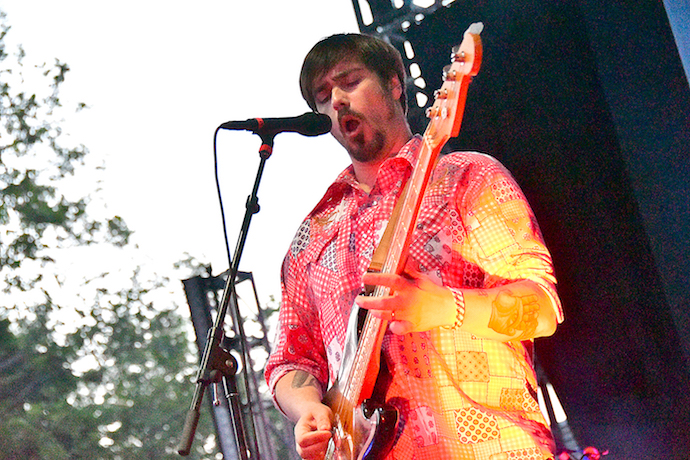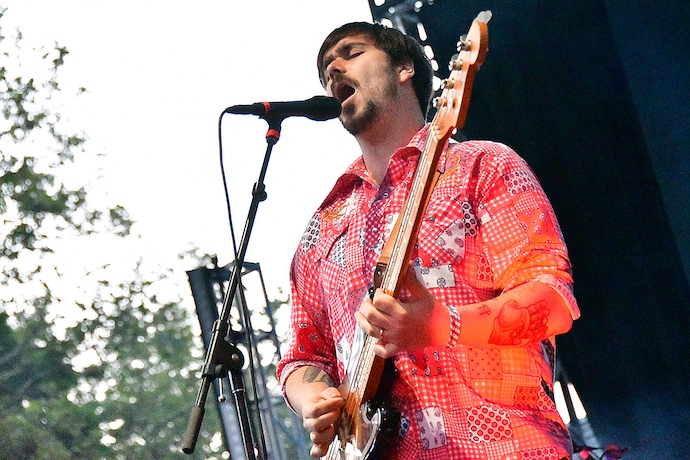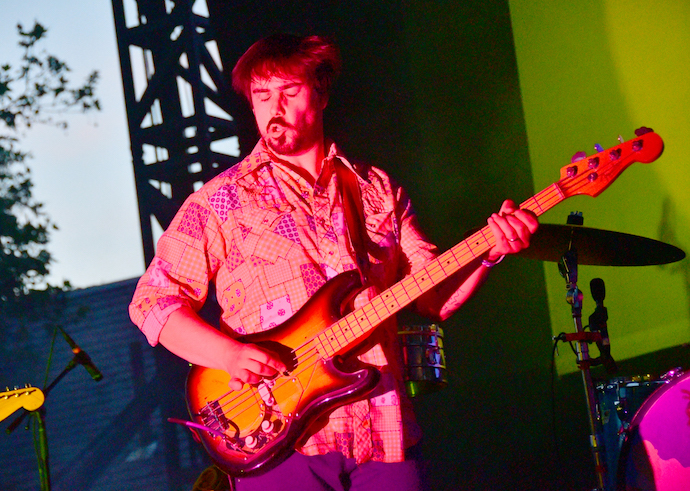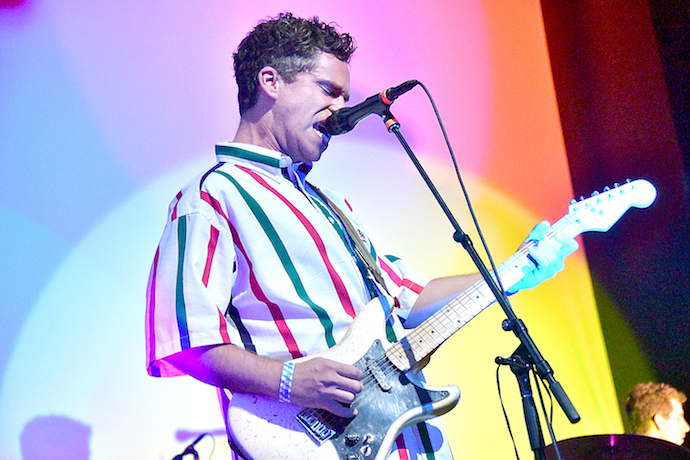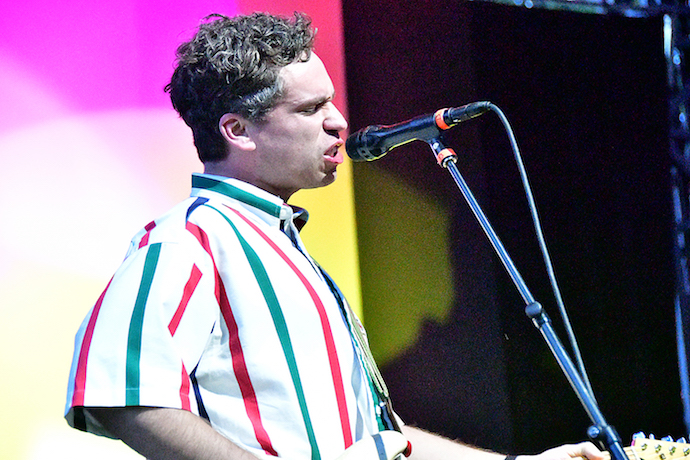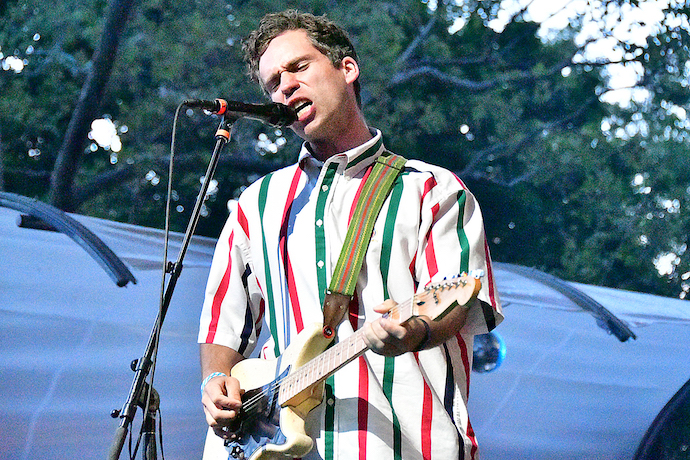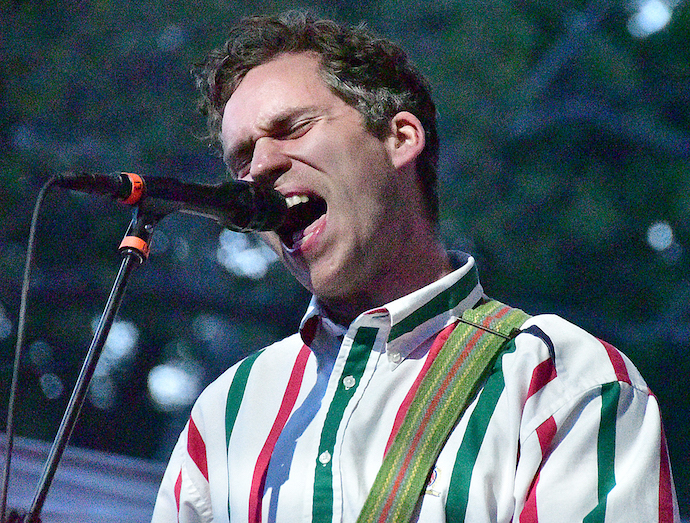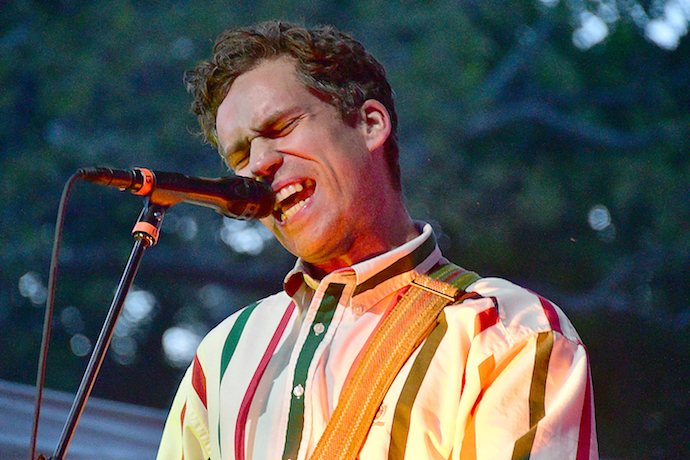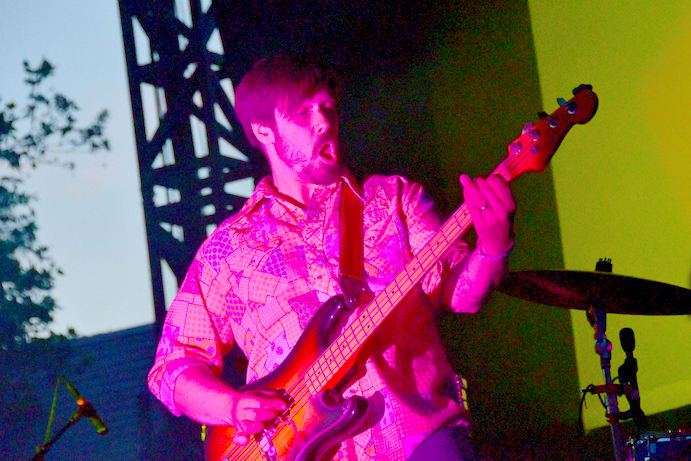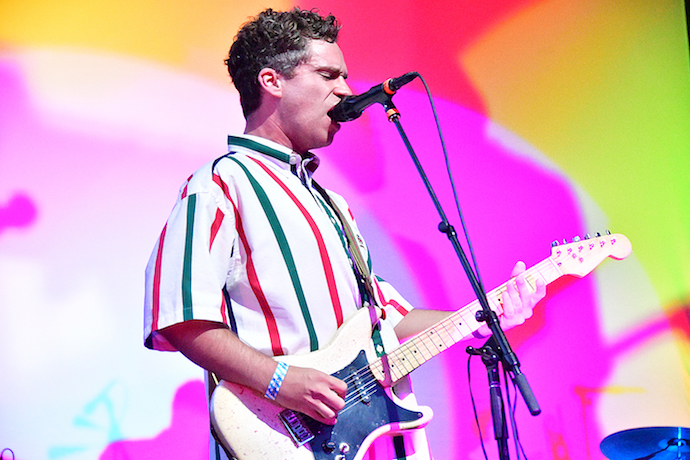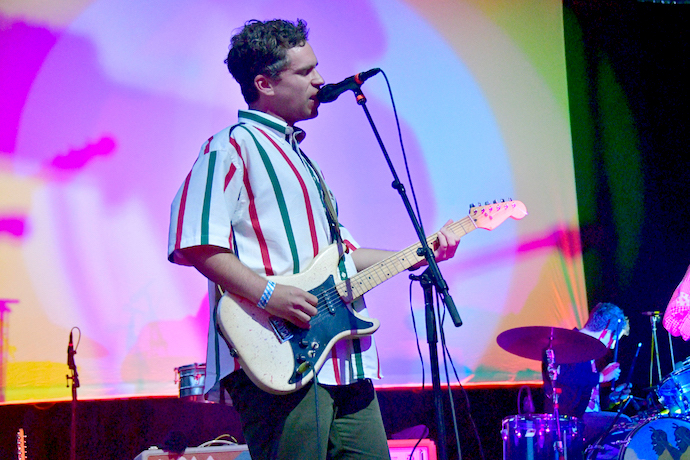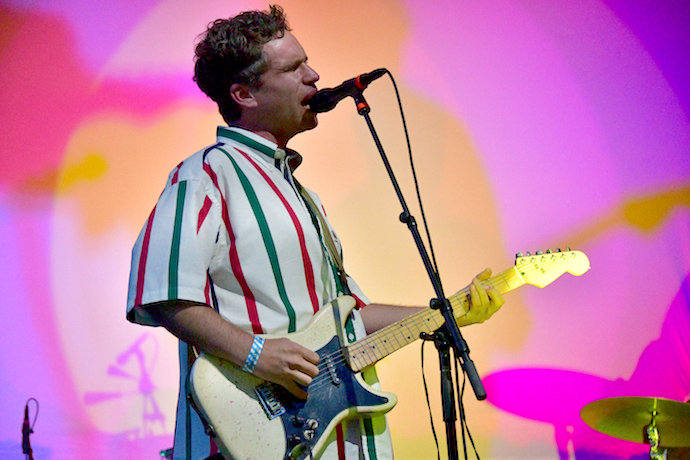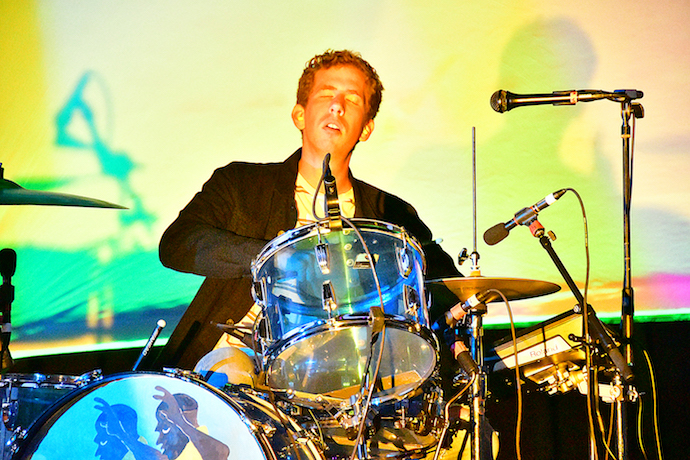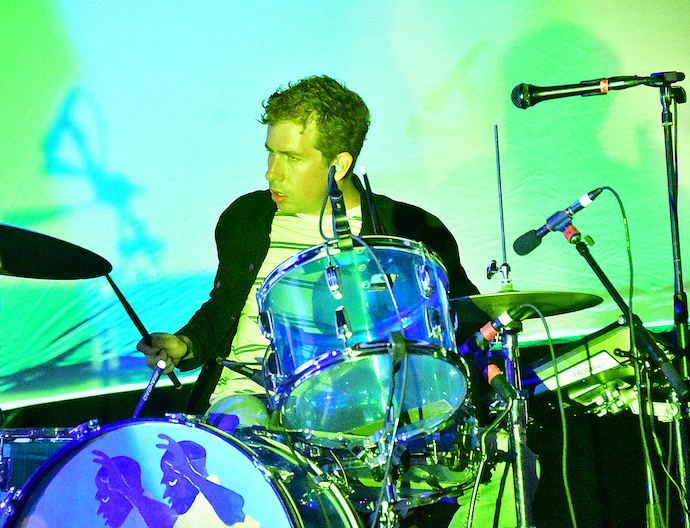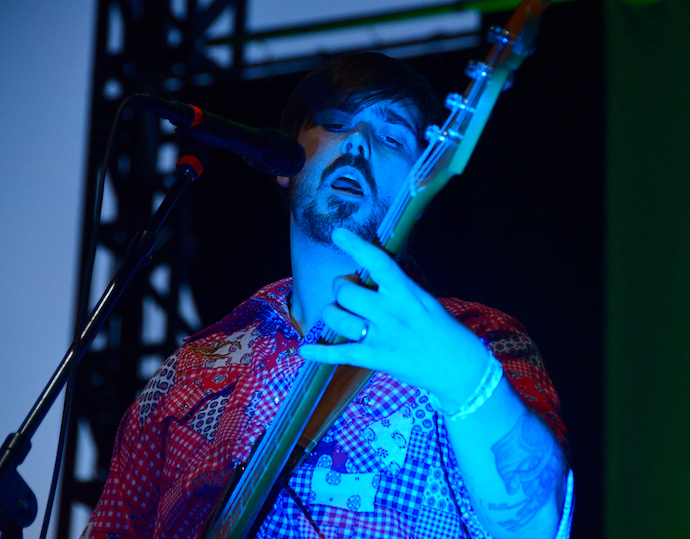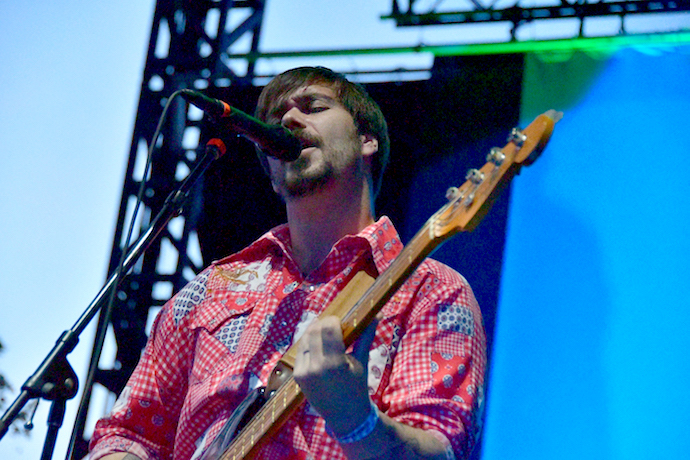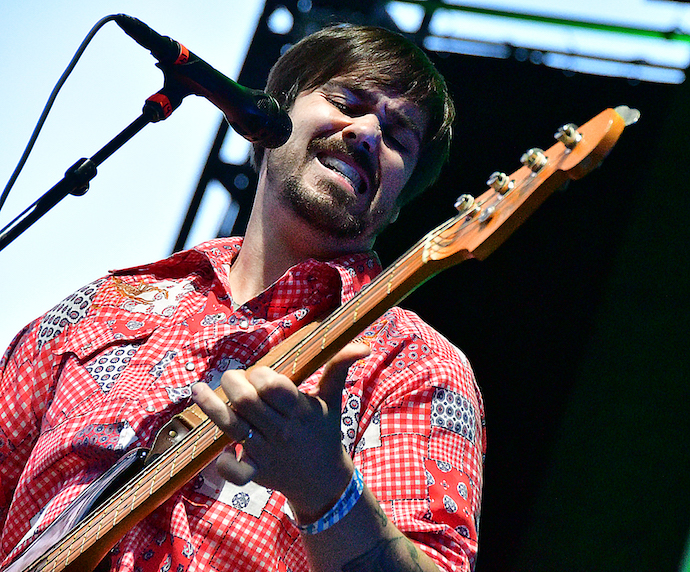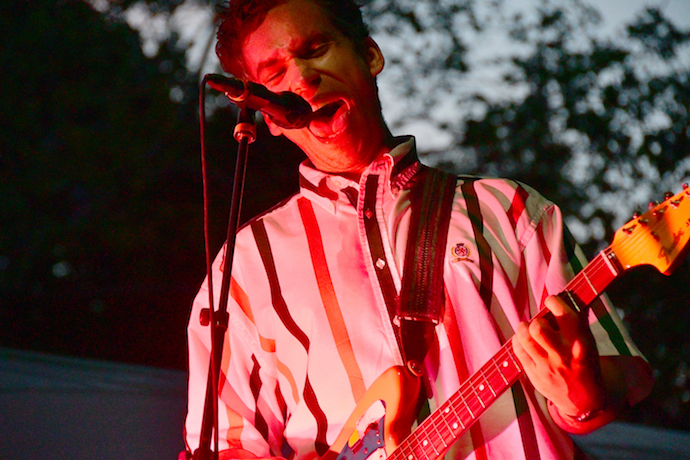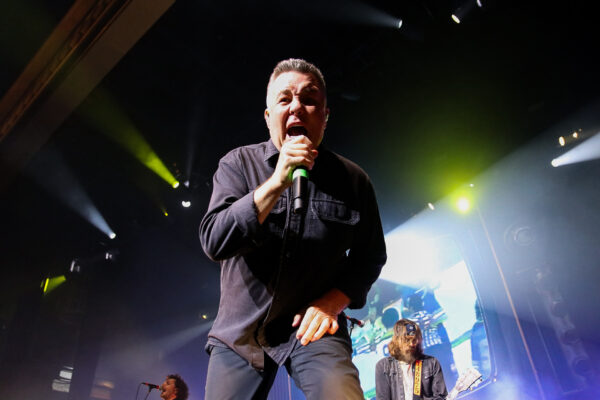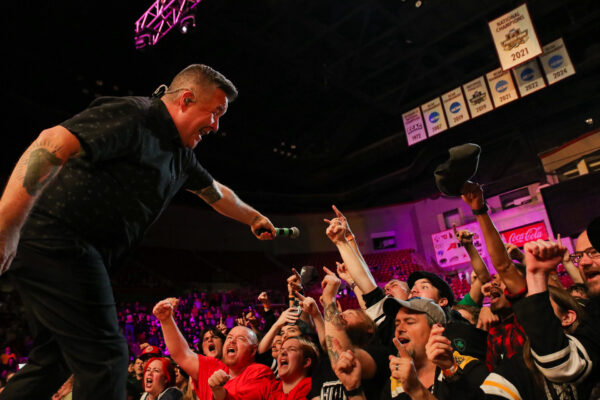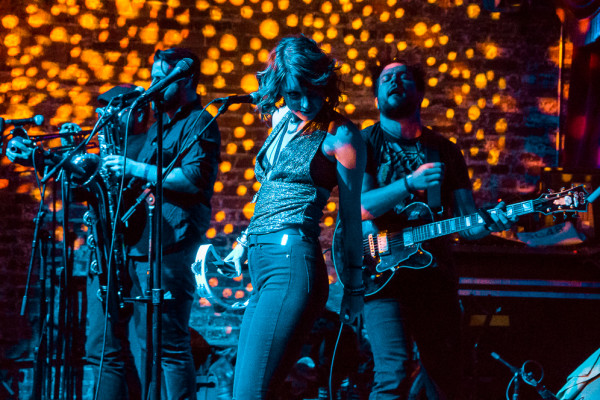NYC’s own indie darlings Parquet Courts headlined SummerStage at Central Park, and this was my first show there of the year as well as a great chance to check out the impressive new multi-million renovation of the grounds. It was only a few years back when I saw these guys playing the tiny DIY venue called Shea Stadium in Bushwick, but now they are ruling the alternative music scene like a boss and playing the city’s largest stages like this massive park amphitheater. This multi-frontman artist collective has always been an open book full of classic musical influences, a recipe packed of many very diverse ingredients that manages to come out of the oven smelling fresh and wholly unique. The selection of influencers is definitely an impressive list of extremely recognizable and yet properly cultish in flavor, with Pavement being one of the most predominant, but reminds me of many others at points including Elvis Costello, Velvet Underground, Feelies, Talking Heads, and many, many others. Many songs can strike you as a dearly-held favorite track of the ages, but one you just can’t quite put your finger on. Yet, somehow nothing comes off as plagiaristic, just a band of extremely talented musicians lovingly embracing of many an inspiration and displaying their musical homages for everyone to adore. Last years’ Wide Awake! is certainly their most adventurous album yet, as well as becoming my favorite album of the year, and it also included a whole bunch of new muses like the absurdist improv of The Fall and some dance grooves of early LCD Soundsystem.
Preceding the headliner was the singer/songwriter Sachiko Kanenobu, who I had never managed to catch before, but by the end of the set I had become a huge fan. She is actually a huge cult figure in Japan’s vast psych-folk underground, and the object of admiration to many around the World. She is best known for her 1971 debut album Misora (roughly translatable as Beautiful Sky), which now that I’ve listened to repeatedly, I can proudly pronounce it as a flawless folk masterpiece. Discovered as an 18-year-old in Osaka, Sachiko was signed to Japan’s first ever independent record company, URC in 1968. She was subsequently overlooked by the label in favor of new male artists at the time, but she persevered and earned the distinction of being the first Japanese woman ever to release an album of her own songwriting and earned the moniker of “the Japanese Joni Mitchell.” However, by the time Misora released in September of 1972, she had split for America, starting a new quiet life with Paul Williams, a music writer who had founded Crawdaddy Magazine in the 60’s. She did re-emerge from self-imposed exile for a short period in the early 80’s, brought out from obscurity by friend, fan, and famed science fiction writer Philip K. Dick, who influenced her to do a follow-up solo album. She did have a rock group for a time called Culture Shock, and had another revival in the indie boom of the 90’s. It was just last year when she played a series of sold-out homecoming shows in Japan in 2018, playing her debut in its entirety, and she just had a couple of her first- ever NYC performances at Union Pool in Brooklyn a couple weeks ago and now she is gracing a much larger stage. She played a few songs solo, acoustic, and seated center stage, but she was then joined by a stunning band of backing musicians including local great Steve Gunn (who inspired her latest revival) on guitars, Yo La Tengo’s James McNew on bass, as well as members of the band ARP (who opened the night). Her Misora has just been reissued via Light In The Attic Records and is definitely worth adoring for all of eternity.
Parquet Courts commanded the packed park crowd like season veterans of rock. Their grooves were seriously infectious and all, but impossible not to dance to, and their punky jams roared with intensity and got many in the crowd to get moshing. Co-frontmen/guitarists A. Savage and Austin Brown made every surreal stream of consciousness rant overflow with meaning, context, and heart while basist Sean Yeaton and drummer Max Savage kept the grooves ferocious and stirring. They had many memorable moments, like bringing a School of Rock children’s choir out, led by Eaters’ Bob Jones, to sing on “Death Will Bring Change” and they brought out a couple saxophonists for a couple of songs as well. Classic older tracks like “Borrowed Time,” “Light Up Gold II,” and the lengthy jam of “One Man No City” as a closer quenched their older fans, while newer tracks like “Total Football,” “Almost Had to Start a Fight/In and Out of Patience,” “Freebird II,” and “Wide Awake” made the audience lose their god-damned minds. It proved to be that perfect “welcome to Summer” shows that will forever be burned into my mind as a truly glorious night.
Article: Dean Keim


